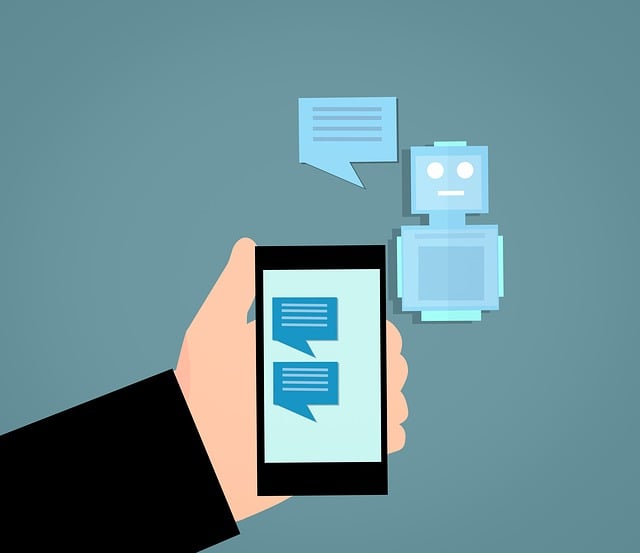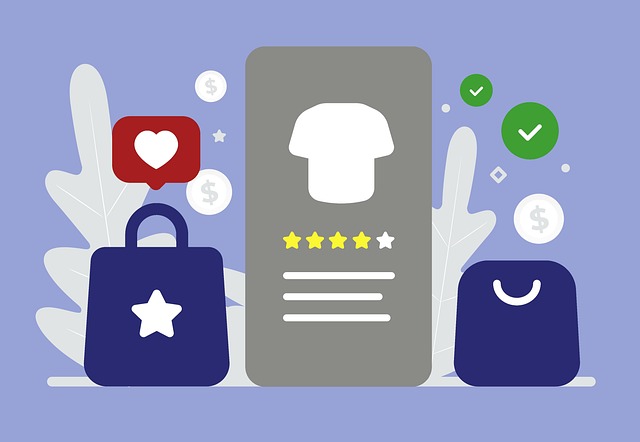AI-powered best ecommerce chatbots are transforming online retail by offering 24/7, personalized assistance through natural language processing (NLP) and machine learning. These intelligent agents handle diverse tasks, from product recommendations to order management, integrating seamlessly with existing systems like CRM and inventory software. Trained on vast datasets, they continuously evolve based on user interactions, ensuring optimal performance and enhanced customer satisfaction in a competitive e-commerce landscape.
“Unveiling the power of AI chatbots: A comprehensive guide awaits. This article takes you on a journey through the intricate world of artificial intelligence-driven conversational agents. From grasping the fundamental concepts to exploring advanced NLP techniques, we delve into how these tools are revolutionizing e-commerce. Discover the key features and advantages of the best ecommerce chatbots, learn about their training processes, and understand their potential for continuous enhancement. Get ready to harness the future of customer interaction.”
- Understanding the Basics of AI Chatbots
- The Role of Natural Language Processing (NLP) in E-commerce Chatbots
- Key Features and Benefits of Best E-commerce Chatbots
- Training, Deployment, and Continuous Improvement of AI Chatbot Systems
Understanding the Basics of AI Chatbots

AI chatbots have transformed the way businesses interact with their customers, especially in the competitive world of e-commerce. Understanding their basics is crucial for leveraging their potential to enhance customer service and drive sales. These intelligent agents utilize natural language processing (NLP) and machine learning algorithms to interpret user queries and generate contextually relevant responses. The process begins with training the chatbot on vast datasets, enabling it to learn patterns and acquire knowledge from a wide range of conversations.
Once trained, best ecommerce chatbots can handle a multitude of tasks, from answering frequently asked questions to providing product recommendations and even facilitating sales. Their ability to understand and generate human-like text makes interactions natural and engaging, setting them apart from traditional automated systems. As technology advances, these chatbots continue to evolve, becoming more sophisticated and capable of handling increasingly complex queries.
The Role of Natural Language Processing (NLP) in E-commerce Chatbots

In the realm of e-commerce, Natural Language Processing (NLP) plays a pivotal role in enhancing customer experience and driving sales. NLP enables AI chatbots to understand and interpret human language, allowing them to engage in meaningful conversations with customers. By leveraging NLP algorithms, these best ecommerce chatbots can process user queries, extract relevant information, and provide contextually appropriate responses. This ensures that shoppers receive instant assistance, from product recommendations to order tracking, without the need for direct human interaction.
The integration of NLP enhances the capabilities of e-commerce chatbots, making them more than just automated responders. They become intelligent assistants that can handle complex customer inquiries, offer personalized suggestions, and even predict purchasing patterns. This level of sophistication not only improves customer satisfaction but also fosters loyalty, setting the stage for increased sales and a competitive edge in the dynamic world of online retail.
Key Features and Benefits of Best E-commerce Chatbots

The best e-commerce chatbots are transforming the way businesses interact with their customers, offering a range of key features and benefits that enhance user experience and drive sales. These intelligent assistants leverage natural language processing (NLP) and machine learning algorithms to understand customer queries and provide relevant, personalized responses in real time. One of the primary advantages is their 24/7 availability, ensuring customers can shop at their convenience without facing geographical or temporal constraints.
Furthermore, top-tier e-commerce chatbots are adept at handling various tasks, from product recommendations based on user preferences to providing detailed product information, resolving common issues, and even processing orders and returns. They can also integrate seamlessly with a brand’s existing systems, such as customer relationship management (CRM) platforms and inventory management software, to offer accurate data and streamline operations. This level of integration not only improves efficiency but also allows for better data-driven decision-making, ultimately contributing to increased customer satisfaction and business growth.
Training, Deployment, and Continuous Improvement of AI Chatbot Systems

AI chatbot systems undergo a rigorous process of training, deployment, and continuous improvement to deliver optimal performance and enhance user experiences, especially in competitive sectors like e-commerce. During training, these chatbots are fed vast amounts of data, including customer interactions, product information, and industry knowledge, allowing them to learn patterns, understand context, and generate appropriate responses. This process often involves machine learning algorithms that enable the chatbot to evolve over time, adapting to new trends and user needs.
Once trained, best ecommerce chatbots are deployed across various platforms, such as websites, mobile apps, or messaging services, where they interact with customers in real-time. They use natural language processing (NLP) to comprehend user queries and generate contextually relevant responses. Continuous improvement is achieved through ongoing monitoring and analysis of chatbot interactions. Developers collect feedback, identify areas for enhancement, and update the chatbot’s knowledge base and algorithms accordingly, ensuring that these virtual assistants remain accurate, efficient, and aligned with customer expectations, especially in competitive markets where top-performing chatbots can significantly boost sales and customer satisfaction.
AI chatbots are transforming the way businesses engage with customers, particularly in e-commerce. By leveraging natural language processing (NLP) technology, these chatbots offer 24/7 support, personalized product recommendations, and efficient problem-solving. The key to successful implementation lies in understanding their training, deployment, and continuous improvement. Best ecommerce chatbots not only enhance customer satisfaction but also drive sales by providing an intuitive and seamless shopping experience. As this field evolves, continued advancements in NLP will further elevate the capabilities of AI chatbots, making them indispensable tools for modern retailers.
